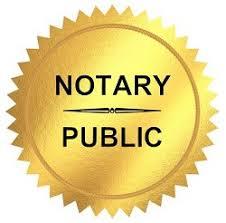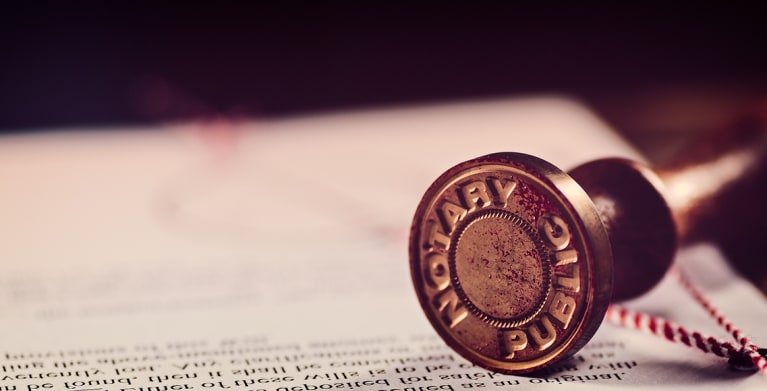Notary Public: Your Trusted Witness and Paper Authenticator
Notary Public: Your Trusted Witness and Paper Authenticator
Blog Article
Debunking Notarial Job: Simplifying the Function and Value of Notaries
Their function, commonly shrouded in secret for lots of, brings considerable weight in guaranteeing the credibility and integrity of crucial files. By untangling the complexities surrounding notarial practices and shedding light on the significance of their acts, a clearer understanding arises of the crucial function notaries play in supporting the textile of lawful and contractual arrangements.
The Background of Notarial Work
Exactly how did notarial work advance gradually to end up being an important part of lawful and company deals? The history of notarial work go back to ancient worlds, where scribes played an essential function in tape-recording important details and verifying files. As cultures advanced, the demand for an extra formalized system to guarantee the legitimacy of contracts emerged. This resulted in the development of notaries, individuals assigned by the state to serve as impartial witnesses in lawful issues.
During the Middle Ages, notaries obtained prominence in Europe, with their functions broadening to include drafting lawful documents, certifying trademarks, and maintaining records. The increase of worldwide trade even more stressed the relevance of notarial job in verifying contracts and contracts throughout borders.
In the modern age, notaries remain to play a vital function in lawful and business deals by confirming identities, confirming the credibility of documents, and avoiding scams. Their role in accrediting the credibility of contracts adds a layer of security and depend the ever-evolving landscape of commerce and law.

Obligations and Responsibilities of Notaries
Notaries play a crucial duty in confirming the credibility of files and the identification of signatories. One of their key obligations is to witness the finalizing of vital papers, such as deeds, wills, and agreements, to make sure that all parties are entering right into arrangements knowingly and voluntarily.
Furthermore, notaries are charged with carrying out oaths and affirmations, which are vital in legal process and the execution of sworn statements. They license duplicates of original documents, offering guarantee to organizations that the duplicates hold true replicas of the originals. Notaries must preserve precise documents of all purchases they oversee to make sure openness and liability. Overall, the duties and obligations of notaries are crucial in safeguarding the integrity and legitimacy of different papers and purchases.
Notarial Certificates and Signatures
Exhibiting careful focus to information, notarial certifications and signatures function as essential components in confirming the credibility of legal papers. Notarial certificates usually include essential information such as the day of registration, the names of the notaries, a summary of the paper, and the notary's main seal. These certificates provide a clear document of the notarial act, making sure that the paper can be conveniently determined and mapped back to the notary that supervised the process.
Signatures play a pivotal duty in notarial work, as they signify the arrangement and permission of the parties involved. Notaries thoroughly witness the signing of documents to confirm the identity of the signatures and verify that they are authorizing of their own free choice. By attaching their official seal and signature to the document, notaries license that the essential procedures have actually been complied with and that the record is legitimate and enforceable.
Basically, notarial certificates and signatures are my response the trademark of authenticity in legal transactions, offering guarantee to all celebrations involved that the papers are reputable and binding.
Importance of Notarial Acts

Notarization Refine Clarified
The registration procedure usually useful source begins with the private offering the document to a notary public. Once the identity is validated, the notary makes certain that the private authorizing the paper does so willingly and without any browbeating.

Conclusion

Notarial certifications generally consist of essential details such as the date of registration, the names of the signatories, a description of the record, and the notary's main seal. These certificates offer a clear record of the notarial act, guaranteeing that the record can be quickly identified and traced back to the notary that looked after the process.
By fastening their main seal and signature to the file, notaries certify that the required procedures have been complied with and that the record is enforceable and valid.
By verifying the identity of the signatures, confirming their determination to enter into the agreement, and accrediting the day and place of the signing, notaries play an important role in maintaining the credibility of lawful papers.After the record is signed, the notary will affix their main seal or stamp onto the paper.
Report this page